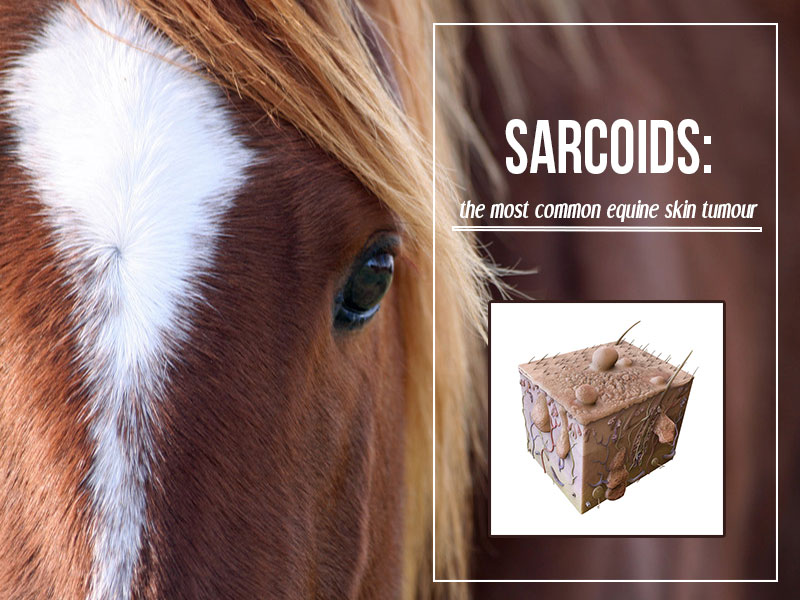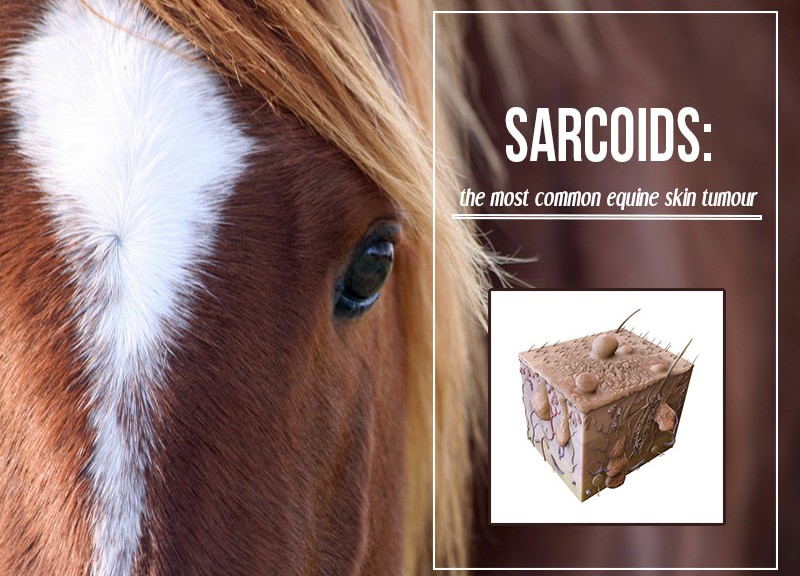
Sarcoids are the most common skin tumours seen in equid species (horses, ponies, donkeys and zebras). Some breeds seem to be more susceptible to this disease than others.
The term sarcoid is used to describe its ‘tumourous’ (sarcomatous) appearance. Although they’re a type of cancer, sarcoids are non-malignant, which means they do not spread to internal organs. They will however, grow larger and it is quite common for them to spread and multiply locally.
These tumours can cause irritation, interfere with tack and they can often ulcerate and bleed. Sarcoids can be extremely unpredictable in all aspects of their development, varying greatly in nature, size, appearance, way of spreading and response to treatment. They are also very likely to recur. For all these reasons, this skin tumour is a challenge for both owners and veterinarians.
Sarcoids can occur just about anywhere on the body but they are most commonly found on the skin of the head (especially around the eyes and mouth), neck, chest, between the front legs (in the axilla) and in the groin area. These areas are often pre-disposed to trauma, which is likely to aggravate the problem. If the sarcoids are knocked or rubbed, their surface will bleed and there is a higher risk for a secondary infection.
There are several different types of sarcoid which vary in appearance and growth patterns: they may look like irregular patches of slightly raised, crusty skin, they can be found individually or in groups, they can look like firm, round nodules covered by a layer of normal skin or they can even appear as fleshy masses that grow quickly and bleed easily.
Although there is controversy over the cause of these tumours it’s generally accepted that a cattle wart virus has some part in the development of this condition. The distribution of sarcoid tumours on the horse also suggests that flies are in some way involved in the transmission of this disease.
There are several treatment options available, but unfortunately there isn’t one single method that will be effective in each and every case! Each sarcoid is different and quite unpredictable. If you think your horse may have one or more of these tumours, ask your veterinary surgeon for advice. An early diagnosis and adequate treatment will increase the chances of achieving better results.
Would you like to know more about horses? Check our Equine Courses:
Equine courses
